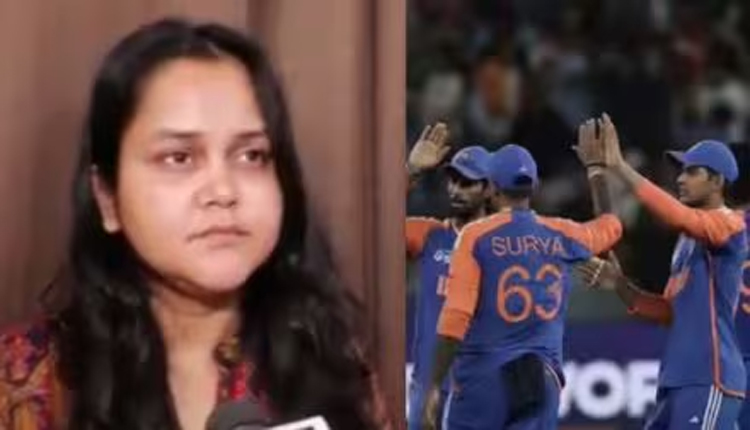New Delhi: As India and Pakistan gear up for their much-anticipated Asia Cup 2025 clash in Dubai on Sunday, families devastated by the April 22 Pahalgam terror attack are voicing profound grief and outrage.
The attack, which claimed 26 lives, has left survivors questioning the government’s decision to allow the cricket match, especially with Operation Sindoor — India’s retaliatory strikes against terror camps in Pakistan — still ongoing. Their emotional pleas have intensified the controversy surrounding the high-profile fixture, raising questions about the intersection of sport and national sentiment.
Kiran Yatish Parmar, who lost her husband and son in the attack, expressed deep anguish, urging the nation to reconsider the match. “This game should not happen,” she said in a heartfelt appeal. “I ask Prime Minister Narendra Modi: when Operation Sindoor is incomplete, why are we playing Pakistan? I urge every Indian to meet the families who lost loved ones in Pahalgam to understand our pain. Our wounds are still raw.”
Her words reflect the sentiment of many victims’ kin who believe that sporting ties with Pakistan, accused of sponsoring terrorism, is an affront to their suffering.
Sawan Parmar, who lost his father and 16-year-old brother in the same attack, was equally vocal. “If you must play this match, first bring back my brother, riddled with bullets,” he challenged, his voice breaking with emotion. “When we heard about the India-Pakistan match, our hearts sank. Twenty-six lives were lost in Pahalgam. Pakistan is a terrorist nation, and there should be no ties with them. Operation Sindoor was intended to serve as a lesson, but it now appears to be ineffective.” His plea has resonated widely, amplifying calls for a boycott.
The families’ protests come amid a broader political storm, with Opposition parties and former cricketers condemning the Board of Control for Cricket in India’s decision to proceed with the match. They argue that it undermines India’s stance against terrorism, especially given the government’s “blood and water cannot flow together” rhetoric.
The Supreme Court recently dismissed a petition seeking to cancel the match, but public sentiment remains divided, with many echoing the victims’ call to prioritise national dignity over sport.
As the teams take the field on Sunday, the cries of Pahalgam’s bereaved families cast a sombre shadow over the game. Their demand for justice and sensitivity underscores the delicate balance between cricket’s unifying spirit and the painful realities of cross-border tensions, leaving India to grapple with a deeply emotive issue.



Comments are closed.